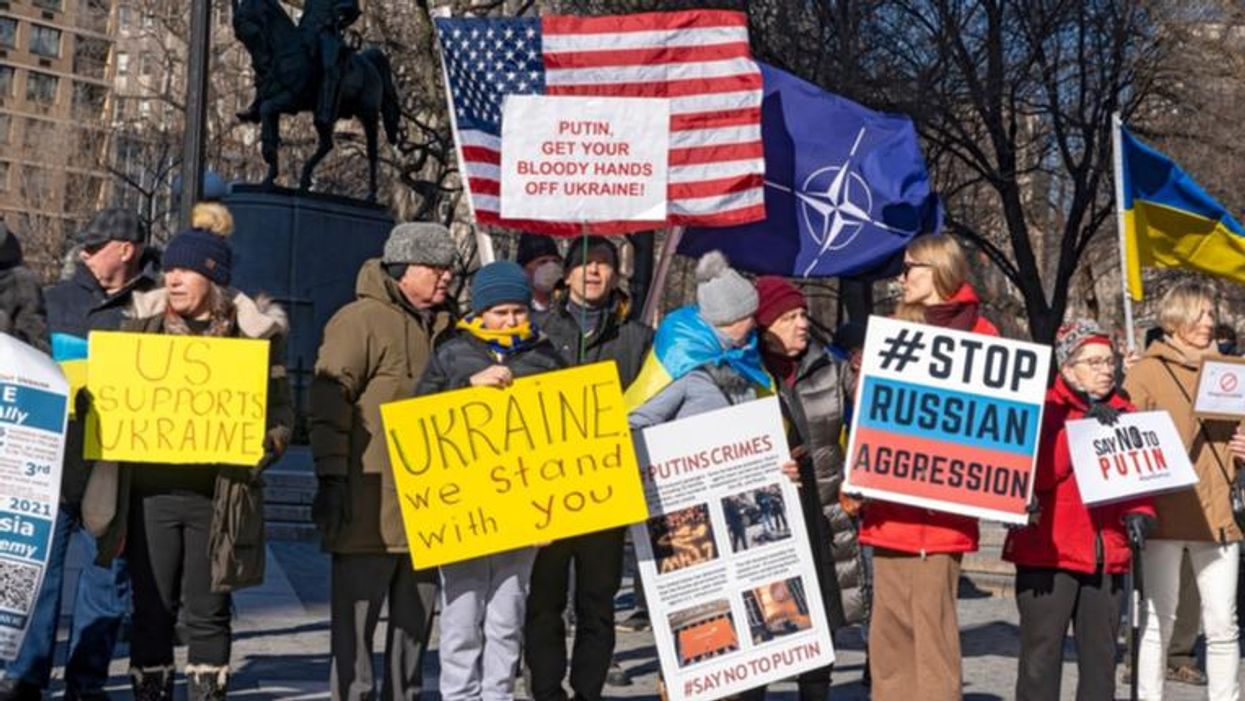NATO response to Russian nuclear attack must 'dwarf any seen in its entire history': arms control experts


Russian President Vladimir Putin's threats to use nuclear weapons if the United States and its North Atlantic Treaty Organization allies directly interfere with his genocidal invasion of Ukraine has rekindled Cold War-era fears of potential atomic Armageddon. One of the major consequences of Putin's unprovoked attack on Ukraine is the weakening of deterrence, based on the precept of Mutual Assured Destruction. That has resulted in Putin forcing the West to rethink its playbook on how to prevent a clash between the world's nuclear superpowers.
Putin, who came to power in 1999, has prioritized the modernization of Russia's vast nuclear arsenal – by far the largest on the planet and arguably the most sophisticated. And he has not been shy about his willingness to prove it.
Russian military doctrine grants Putin the unilateral authority to launch preemptive nuclear strikes if he perceives “aggression against the Russian Federation with the use of conventional weapons when the very existence of the state is in jeopardy.” Ensuring that he never feels the need to escalate to that point presents an unprecedented challenge for the West – but not an insurmountable one, according to two nuclear arms control experts.
William Alberque, the director of Strategy, Technology and Arms Control at the International Institute for Strategic Studies, and Fabian Hoffmann, a PhD fellow at the Oslo Nuclear Project, published an editorial in Thursday's Washington Post outlining steps that NATO can and should take to rein in Putin's perilous machinations.
First, they outlined what could drive Putin to deploy the bomb:
Though it is unlikely that Russia will use nuclear weapons in Ukraine, the risks are real. To understand these risks, it is worth describing three possible scenarios:
Meanwhile, "on credibility," the authors explained, Putin "has a long-established track record of using threats of force and threats of nuclear use for coercion and dissuasion. NATO leaders show comparative restraint in messaging toward Russia, leading to doubts on the credibility of NATO nuclear deterrence. Putin believes that the West will back down rather than risk a confrontation, even as he bombs cities, kills civilians and shells humanitarian corridors."
NATO, they wrote, "must make clear that the introduction of nuclear weapons into the conflict by Russia would entail diplomatic, economic and military costs that dwarf any seen in its entire history. Indeed, the use of nuclear weapons would result in immediate isolation; even erstwhile friends and partners, such as India and China, would immediately end their economic and diplomatic support. NATO would lead a global effort to effectively expel Russia from the international community. Russian embassies would be closed, Russian officials would be ousted from their positions in international organizations, and efforts to curb Russia’s veto power in the United Nations Security Council would accelerate."
Furthermore, Alberque and Hoffman continued, the defensive alliance's "leaders must state that nuclear use would risk a military response by NATO. This response would entail strikes against Russian military targets — either in a targeted fashion against units involved in the nuclear use (especially in response to the first scenario), or a wider attack against Russian forces in Ukraine and Belarus, perhaps even in Russia — crippling Russia’s supply lines, airfields, missile launch sites and command-and-control infrastructure. Such a response should spell the effective end of Russia’s military campaign in Ukraine. NATO would not need boots on the ground to conduct such an attack; massed conventional cruise missile strikes fired from aircraft above NATO territory and the surrounding seas could do the job."
Admittedly, Alberque and Hoffman noted, the outcome of any tête-à-tête between NATO forces and Russian troops would be precarious.
"But leaving unanswered the use of nuclear weapons as part of an unlawful attack on a neighboring state is untenable," they cautioned. "It would signal to the world that the West will allow aggressors to do whatever they want if they make nuclear threats, paving the way for further atrocities, nuclear use and, most likely, uncontrolled nuclear proliferation. No country currently facing a security dilemma and with the means to develop a nuclear arsenal would forgo doing so if the West backs down."
Therefore, "if the West is interested in preventing Putin from using nuclear weapons in Ukraine, the United States and NATO will have to make clear to Russia that they are willing to respond. Credible deterrent messaging from the United States and NATO would complicate Moscow’s planning and narrow Putin’s scope for escalation," Alberque and Hoffman said.
"It is a terrible thing to advocate against de-escalation in the face of nuclear threats," they concluded, "but the opposite course would mean acquiescence — and that could lead to suffering on an unimaginable scale."
Alberque and Hoffmann's full editorial is available here (subscription required).